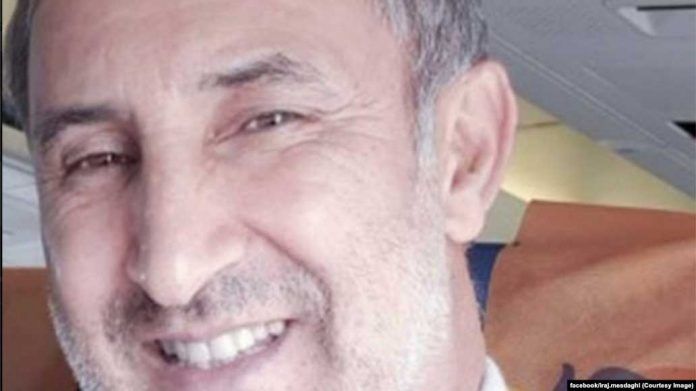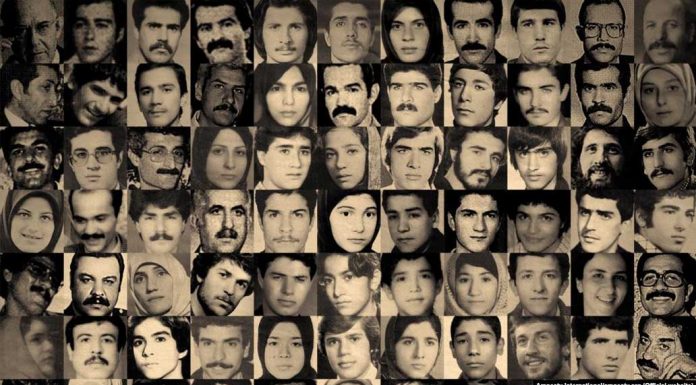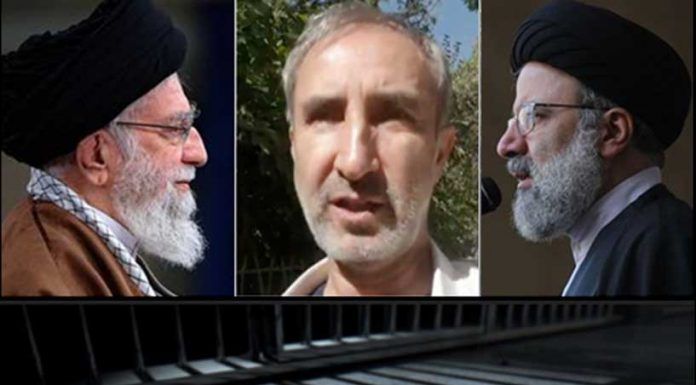Hamid Nouri, an Iranian man alleged to have worked as a deputy prosecutor overseeing executions of political prisoners in Iran’s Gohardasht prison in 1988, has been charged with war crimes in Sweden. This is the first time a person has been charged with war crimes committed during this period in Iran by an official court in Europe.
The trial will begin on Aug. 10 and finish in April 2022, enabling the court to hear the testimony of more than 30 former political prisoners and relatives of political prisoners who were executed.
If convicted, Nouri could serve 20 to 25 years in prison — Sweden’s current guideline for life imprisonment — but would be eligible for release after serving two-thirds of his sentence. If freed, he would then face extradition to Iran.
Nouri — who was known as Hamid Abbasi while working at Gohardasht prison — was charged with war crimes for enabling mass executions carried out from July 30 to Aug. 16,1988 against sympathizers of the opposition group the People’s Mujaheddin Organization of Iran (PMOI). He is alleged to have been part of a death committee in the prison which approved detainees for execution without due process. The committees were installed across several prisons in Iran at the time.
The 44-page indictment — seen by Kayhan Life and submitted to the Stockholm regional court on July 27 — has accused Mr. Nouri of two separate offenses: the murder, torture and inhumane treatment of PMOI sympathizers under the war crimes offence; and the murder of Iranian Muslims who converted to other faiths, as well as of leftwing party supporters, from Aug. 27 to September 1988.
Nouri was arrested under international law at Stockholm airport in 2019 as he arrived to visit relatives. Swedish police were alerted to his presence by Iranian dissidents who had been monitoring Nouri’s whereabouts for several months.
Nouri has denied the charges and has claimed a case of mistaken identity, although several former political prisoners who had been shown a photo of Nouri said they recognized Nouri as the deputy prosecutor in Gohardasht prison during the executions. The state-sponsored executions in Iran’s prisons lasted approximately five months, and led to the deaths of more than 5,000 political prisoners.
Following the launch of Nouri’s trial, US republican senators Tom Cotton and Chuck Grassley called on US President Joe Biden to bar incoming Iranian President Ebrahim Raisi from traveling to the United States to attend the UN General Assembly due to his involvement in Iran’s death committees, in a letter published on July 27 and shared July 28 on Twitter.
The Swedish indictment of Nouri has asked the court to allow his phone to be confiscated until the end of the trial and for Nouri to be expelled from Sweden and barred from returning to the country.
The indictment published the names of more than 100 former political prisoners and relatives of those executed who submitted evidence to the court. It also included the names of leading legal experts and human rights bodies who provided written documentation, such as British lawyer Geoffrey Robertson; Amnesty International; the Abdorrahman Boroumand Center; and the United Nations.
Former Iranian political prisoner and human rights campaigner Iraj Mesdaghi, who played a central role in raising the lawsuit against Nouri told Kayhan Life: “While in prison, myself and my cellmates were badly beaten and attacked with electric cables. We were also put in one room with around 50 or 60 people, without any windows. Prison officials put blankets under the door so after a couple of hours we just couldn’t breathe. They told us we were being placed in a “gas room,”” Mesdaghi said.
“I was [part of] one of the first groups to enter the prison at that time, and I think that may be why I and the others in the group miraculously survived. There had been an initial disagreement about the influx of detainees, with the deputy prison chief questioning the ongoing admission of prisoners, so we were sent back to our cells. Had we been sent to the death committee on that day we would probably have been killed.”
As well as testimony by victims, the indictment listed other evidence including: photographic evidence of Nouri engaged in military service; WhatsApp messages retrieved from Nouri’s phone appearing to show that he had significant legal knowledge and contacts in Gohardasht prison, Evin prison and the Iranian judiciary; and confirmation that Hamid Nouri was also known as Hamid Abbasi.
Sweden’s senior public prosecutor, Kristina Lindhoff Carleson, told Kayhan Life that the case took nine months to prepare.
“I decide myself if I want to prosecute or not, so I always go forward with cases that I think I have good evidence for, and where the evidence will be enough. That doesn’t always mean the court will agree with my point of view, and unexpected things can also arise before you go to trial,” Ms. Lindhoff Carleson said.
“If the court finds Nouri should be convicted for murdering a large number of people, the only sentence that can then be handed down in Sweden is life imprisonment. If he is found not to be guilty, he will be released without having to serve a sentence of any length.”
Kaveh Moussavi, a human rights lawyer and former head of public interest law at Oxford University who was instrumental in securing Nouri’s arrest, gave the court information on the hierarchy of staff working in Iranian prisons during the mass executions.
Speaking to Kayhan Life, Moussavi said, “This trial is an extraordinary success story for the advancement of international accountability. The Iranian regime has benefitted far too long from a sense of impunity.”
The verdict in Nouri’s trial is expected to be given in or around June 2022 once the court has written its judgment.





What does this mean for the prisoner Ahmadreza Djalali currently on death row in Iran who has been terribly and cruelly treated in Iran who holds a Swedish passport